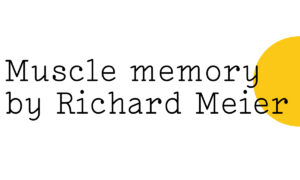The Friday Poem on 04/02/22
We chose ‘The Astronaut Who Came To Tea’ to be our Friday Poem this week because we really like the way Sarah Wimbush interweaves imagery from outer space with strange and evocative Gypsy / Traveller vocabulary. The poem celebrates difference, the unknown, the ‘other’, but shows how barriers can grow up between people, and mourns the ensuing loss of identity and freedom. There’s an implicit warning in the lunar gaze of the ‘astronaut’, a suggestion that we meddle with things we don’t understand — dark matter — at our peril, and we relish that too.
The Astronaut Who Came To Tea
Theirs was a strange spacesuit.
Some wore garb the colour
of saffron, pimpernels, dirt-tracks,
girded themselves with sovereign
coinage and jaunty brims. Others
swashed skin plump as horse-
chestnuts launched from bowed hulls.
We’d haggle cobs and hoofwork
at the market, had our wickerings
repaired, our foibles sharpened.
They bought our milkmeatbread,
bewitched us with sorcery
and fiddlejigs: that intergalactic cant,
and every year an Astronaut
worked the doors, and my mother
would invite her in to tea.
I recall the gravitational pull
of fire-scars and bracts,
how the visitor promised her people
come lay the hawthorn
a nod being her word.
Mother picked moonbow ribbon
from the trushni for my hair
while the Astronaut would sip
from a china cup, swirl it,
and stare into the leaves.
Something was sometimes said,
sometimes not. She’d walk-on
with a pillowcase of East India tins,
lesser linen, rags, and gave my
mother cushti bok which she clung
onto. Once, I crept down
to the shuttles, the Nauts orbiting
their yogs like bats and hidden
deep inside the black hole
of the copse I could taste
the liberty, and a cosmic particle
inside me would ache.
Then one year the landings flooded
with red brick and privet
and the space people didn’t come,
and the next year, till they were gone
and someone said, if they did return,
livestock would disappear
and Lord help the women —
so we edged our blades, built wall
upon wall,
and new skywalkers
lug the back-breakery.
Light years away from kin,
they sleep in metal cabins chained
to Earth, and exist to harvest
our neat sweet greens.
I saw her the other day,
the Astronaut who came to tea,
stood on the edge of Common Street,
woollen shawl lifting
as the juggernauts roared past,
face pinched to a dried-out chestnut —
her lunar gaze, all that dark matter.
trushni — calling-basket
yog — fire
cushti bok — good luck

